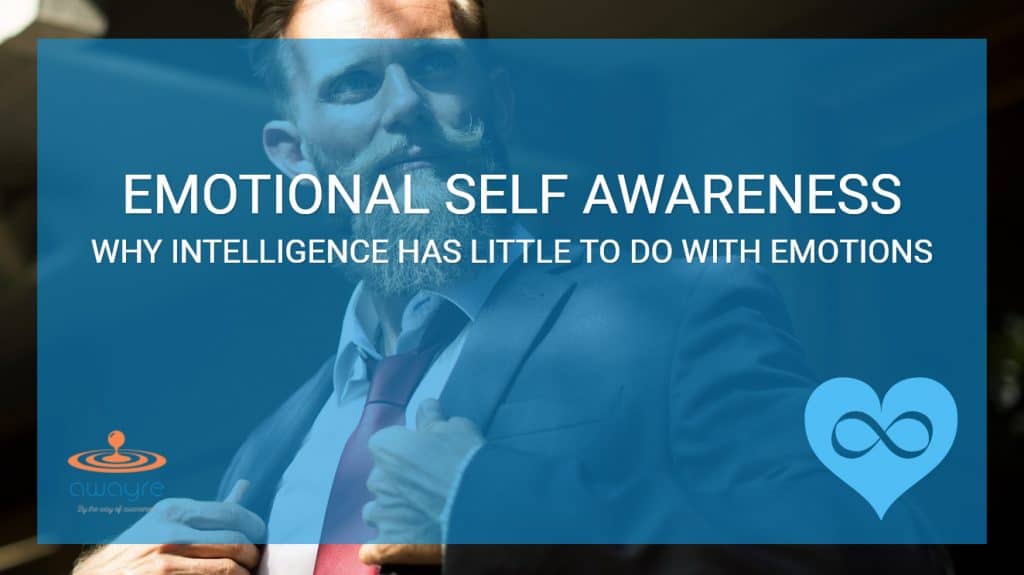How do people feel when they interact with the people in your team? If you had a better handle on the term "emotional intelligence," would your business or your work team be perceived more favorably by other people?
The term Emotional Intelligence has been thrown around quite a bit lately but there is little clarity on what it actually means to be "emotionally intelligent." This article attempts to demystify the term and puts it in a slightly different term - as Emotional Awareness.
"Emotional Intelligence” has been quite a popular term lately, especially in the leadership and management development circles.
There are studies done that “prove” that we have emotions, complete with pictures of brains that show where we store emotions and where we process intelligence.
All of this feels a bit comical to me. Why do we have to go such lengths to prove that we have emotions?
We feel emotions. Isn’t that proof enough?
The real question is - within the context of business management - What do we do with the simple fact that we have emotions?
A Little History of Management Theories
Traditional management theories were developed in the 1930’s, in the days of industrialization, when we were fascinated with machines.
This is why the business organization was primarily seen as a big machine with people forming some of the machine parts.
In such a machine, emotions had no place as emotions are unpredictable and even uncontrollable.
When computers came along, we looked at the business as a more advanced and more complex machine even if that machine had less of a physical presence. (Hence, our world became more virtual and our work more “in the head.”)
Emotions Make Us Human And We Don't Like It
Still, emotion was something that we could not see how to fit in the organization. Perhaps that’s why the term “Emotional Intelligence” had such a pull on us.
With our intelligence, so the premise goes, we could control and channel our emotions.
The result is that we became, or were expected to become, more and more like “Data,” the super-advanced robot or an android from the cult-fiction Star Trek, the Next Generation, who is intellectually superior but incapable of feeling the variety of emotions a normal human being is expected to feel.
Agree or Disagree?: "Emotions and intelligence are equally important in managing people." #EmotionalIntelligence #EmotionalSelfAwareness #awayre
Emotions and Intelligence Are Equally Important In Managing People
In my work with people in business, I have observed that intelligence and emotion are two human faculties that are both equally important.

Intelligence has little to do with emotions.
So this idea that Intelligence should somehow suppress or control emotions has many flaws.
Sure, our intelligence affects and influences our emotions.
Positive thoughts produce positive emotions; negative thoughts produce negative emotions. But the opposite is also true. Positive emotional states produce positive thoughts and negative emotional states produce negative thoughts.
That’s why, it’s limiting to see intellect as being somehow “superior” to emotions.
The Power of Emotions: A Necessary Ingredient in Managing People
Emotions are powerful. When we take emotions out of our management practices, we lose the power of emotions.
After all, every successful endeavor has certain emotional charge at its foundation.
Don’t believe it?
Organizations must harness the power of the raw, base emotions, not temper it down with “intelligence” the way it has been done in the last 100+ years. #awayre #EmotionalIntelligence #EmotionalSelfAwareness
Imagine the “I Have a Dream” speech by Dr. Martin Luther King, Jr. without its emotional content.
Without its emotional tone, the speech would be flat and probably would not inspire a hundred people, much less millions.
That emotional content was the driving force behind the Civil Rights movement. You could say that Dr. King was merely channeling the emotion that was already there in the movement. That’s why it had such an appeal.
My point is simple: Emotions are a powerful ingredient in leadership and management practices. For organizations wanting to excel and succeed, they must harness the power of the raw, base emotions, not temper it down with “intelligence” the way it has been done in the last 100+ years or so in business organizations.
Emotional Self Awareness: A Modified Definition of Emotional Intelligence
Perhaps a better way to see emotional intelligence is as Emotional Awareness. Emotional Awareness implies that a part of us is aware of what we are feeling in the moment.
This modified definition takes us away from having to analyze emotions or process them. It allows us to make sure that we don't treat intelligence as superior to emotions.
It allows us to see emotions as what fundamentally makes us human and use it to excel in what we do.


